PALM SPRINGS — It’s been six months since Mayor Geoff Kors was sworn into office for a one-year rotation following the move to district-based elections and the elimination of a directly elected mayor. He represents District 3.
There was the perception among some, albeit a handful, that the move to district representation would drastically alter the way government works. As always, there are five members. Each has a single vote. The mayor has no more or no less power than any other member. The only difference may in style and personality.
It has been an unprecedented time for the City Council as it unexpectedly found itself governing under the threat of a worldwide pandemic and a resulting fiscal crisis.
Against this backdrop, Uken Report asked all five members of the City Council if district-based elections have worked as intended.
Read Dennis Woods’ full response by clicking here.
Mayor Pro Tem Christy Holstege and Councilmember Grace Garner did not respond.
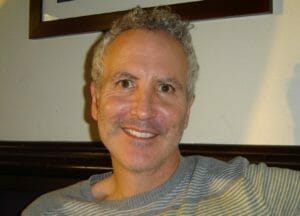
Mayor Geoff Kors
“The impetus for moving to districts was state law that required any local government, that had what’s known as racially polarized voting, to switch to districts,” Kors told Uken Report. “Racially polarized voting is in existence if demographers find that minorities had to vote for candidates differently than the majority, and their candidates rarely get elected. The data showed that we did have racially polarized voting in Palm Springs.”
As a result, the city moved to five districts, similar to Cathedral City and Indio. One of the districts had a majority of minority voters, and that was District 1.
“The result of the first election, which was last November, was that we elected our first Latina in the history of Palm Springs to the City Council, Grace Garner, and only the second Latino that’s ever been elected to the City Council in the history of Palm Springs,” Kors said.
That was the goal of the Legislature — to increase minority representation, the mayor said.
As far as its impact on government operations, everyone has been consistent since the election in focusing on the responsibility of the whole city, just like everyone in the State Assembly or the State Senate votes for the whole state, or Congress and the U.S. Senate votes for the whole country.
“I think one of the benefits that came out of it was that each of us has approximately nine organized neighborhoods in our districts,” Kors said. “I’ve had several Zoom meetings with the leadership of the neighborhood boards and the neighborhood reps for One-PS, and it allows people to know exactly who to contact if there’s a neighborhood-related issue such as a stop sign that’s missing, the need for speed bumps, whatever it may be, people have a person who they can contact directly. Although, many people still contact all five of us on citywide issues, which is appropriate. (For a look at Kors’ calendar for the past six months, click here.)
Many cities didn’t see a change in the diversity in their City Council in the first election, Kors said. So, to have that happen in Palm Springs shows that the goals of the State Legislature in having district elections does work.
Councilmember Lisa Middleton wholeheartedly agrees with Kors.
“The move to Districts is working for the people of Palm Springs,” Middleton told Uken Report. “As a result, we have the most diverse and representative City Council in the history of Palm Springs. The range of our experiences has been particularly evident and important in responding to the COVID-19 crisis. Grace Garner and Dennis Woods have brought exceptional insight and wisdom to our deliberations.”
Middleton currently represents the city at large. She has announced her intention to seek the District 5 seat in the Nov. 3 election.
You may read Middleton’s full response by clicking here.
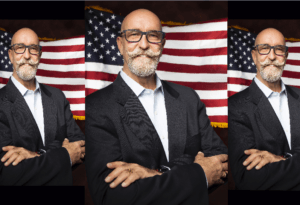
Les Young
Les Young, who ran unsuccessfully for the District 1 seat in the November 2019 election, told Uken Report he is “disappointed that the representative from each district is not in the forefront of city leadership for his or her district.
“With the election change, I expected to see a considerable difference between how the city previously operated and how it operates now. I expected to hear district representatives speaking out on issues impacting their districts,” Young told Uken Report.
For example, since Covid-19 is our new normal, how are district representatives dealing with restaurants, closed retail, service providers, city service issues like streets, parks, City Hall, Airport, Animal Shelter and other examples in their districts, Young said.
“Frankly, I am only hearing from the mayor either in the newspaper or city-issued emails. Technically, the mayor should be monitoring the needs of his district, District 3. I am very concerned going forward, as there are discussions about social distancing in restaurants and the possibility of closing streets and accommodating tables and seats in the streets. Is that for all restaurants across the city or only those restaurants on Palm Canyon Drive, District 3? Is there representation for each business in the city?”
Young said he heard that SCE had turned off electricity in a District 1 neighborhood to do some general maintenance during triple digit weather.
“My immediate thought was where is the District representation? During a time when a homeowner can’t go to the movies, the mall or other air-conditioned services seems like the time someone in power should be representing the people in that district,” Young said. “I don’t know how that got settled but I would like to have heard how the District representative stepped in and saved the day.”
For more on district-based elections and COVID-19, Uken Report held a Q&A with Kors.
Uken Report (UR): How has, if it has, COVID-19 changed the way the district-based system works?
Mayor Geoff Kors: I don’t think COVID-19 has changed the way district-based elections have worked. We’ll have two this year, districts 4 and 5. I don’t think it’s changed what I had hoped would happen for how government would operate. We’re all representing and focused on the entire city, but we have our districts that elected us, and several of us have had meetings just with our districts so we can answer questions in a more conducive manner.
I don’t think much has changed in the way the Council operates at our meetings, or works on different subcommittees, or as liaisons to different issues that impact the whole city. I think where it’s changed is we have more diversity on the Council. We have two Council members in their 30s, which we never had before. We have a majority of women, which we never had before. We have a Latino, which we’ve never had before. I think it’s changed who’s on the Council, and with that, different life experiences are brought to the table.
Having someone who grew up here, and went through our schools, and utilized our community centers, and having that voice is something we didn’t have in the last Council. Having a majority of women is something we haven’t had before. I think it’s important from that perspective.
It’s important that people see themselves reflected in the government, that they feel they have a voice, that they feel they have a say who gets elected.
That was the reason the Legislature said, ‘If you’re going to have racially polarized voting, you need to go to districts.’
Voters who are part of a racial or ethnic minority will have a better chance of electing the candidate of their choice than if the entire electorate elects the entire government. We don’t do that in this country in almost any case. We don’t elect the president by a majority vote, we do it by electors from the state. We don’t elect the Senate my a majority vote of the country, we do it by states. Same for Congress, Assemblies, State Senate, School Board, College Board, Water Board. We have a representative democracy, and our democracy is much more now representative of the city of Palm Springs.
UR: You held an online Town Hall for all district residents. I’m curious, why did you do that? Did you believe it was your role as mayor, or were you asked to? Or just how did that come about? It’s not a bad thing, just curious.
Mayor Geoff Kors: I held several online meetings with the representatives from the nine neighborhoods in District 3. I’ve also been on numerous webinars for all of our residents. Some of them have been focused on issues for tenants, and employees, and how to apply for unemployment. Others have been for businesses. … We’re doing one for businesses, some not allowed to open. For hair salons and barber shops, retail, restaurants, and places of worship, so we can share with them the rules and answer the questions they may have.
I think it’s really important that we do those because things are changing so rapidly, and there’s so many questions. Giving people an opportunity to ask questions, and for us to get the information out is critical during this time.
One, as Mayor, I feel I should be taking that role on this year. Also, I’m the liaison for business, Economic Development and Business Retention with Mayor Pro Tem Holstege, and we’re the two members on the re-opening task force. I’ve been on the budget subcommittee from the start of when I was first elected, and I keep doing that work whether or not I’m mayor. I was on before, I will be on after. Same with economic development.
Part of it is the focus that I’ve taken on tourism, and economic development, and business retention, and the budget. All lend themselves to these issues, and that’s how we divide ourselves up. There are other members who are focused on planning, and transportation, and other issues. These are the issues I’ve been focusing on throughout my time on Council, not just this year.
UR: Mayor, I really appreciate that. That provides great context for what I’m trying to get to, and a question that has been raised. Every Council member has an equal vote, as you know, and the Mayor is allegedly a figurehead. You have really stepped up as a leader, in my opinion, and in the opinion of some others I’ve spoken with. One of your colleagues described you as doing a “sterling” job. Is leadership in your nature? Or do you feel it is expected of the Mayor?
Mayor Geoff Kors: The answer to your question is both. I think that the person who’s in the role of mayor is one member of Council, but is the lead, but is not only spokesperson for the City Council. By nature, people look to the person in that role to answer questions in the media, to reach out to if they have problems. They reach out to others as well, but I do think there’s added responsibility in the time that you’re mayor.
That said, I did a lot of this work before I was in the role of mayor. I was very involved in editorial board meetings, and talking to the media, and focusing on the various issues I took on. I took on a lot of the very controversial issues that I felt needed to get addressed, that hadn’t been addressed.
From creating a pension reserve fund and building our reserves up over the last four years, to trying to come up with a solution when it came to vacation rentals. … creating the Business Retention Economic Development Task Force, and coming up with idea of the Uniquely Palm Springs campaign for tourism and for our local businesses. I did all that work as a Council member, and I’ll continue to do it next year when I’m no longer in the role of mayor.
UR: If the Council wanted you to serve as mayor for a second year, could you? Would you? I know this issue has come up in one other city.
Mayor Geoff Kors: I think the rotation that we all agreed on is the right way to move forward. I think that it’s not going to change the work I do, and the work other Council members do. It really is a person who’s chairing the meeting, and who the press often calls first on a lot of issues, but everyone speaks to the press, and everyone participates in the meetings. I think it’s really good that people see themselves reflected chairing meetings.
I think next year, when Mayor Pro Tem Holstege assumes the role, I think having someone who’s a millennial, someone who is doing this as a new mother, really sets an example for people. I remember when my niece came when I was running the first time to help me in my campaign. She was between her first and second year of college. She walked into City Hall for a Council meeting with me to watch it. She looked at the dais and she said, ‘Wow.’ I said, What?
She goes, “There’s one woman of five Council members, and there’s no diversity.” I should have noticed that way before she did, but it’s the first thing she noticed because she didn’t see herself reflected.
It’s so important that everyone sees themselves reflected in their government, and that’s what district elections is all about.
UR: That’s a great anecdote. One other question. you and the City Manager spend a great deal of time discussing Main Street businesses, Uptown and Downtown. What about businesses on, like, say Sunrise and El Cielo Road, and maybe even East Palm Canyon, over by Vons. There are a lot of businesses over there. What about those businesses?
Geoff Kors: Sure. In our Business Retention and Economic Development meetings, which are open to the public, and we invite all the businesses and all the business organizations, we talk about businesses throughout the city and how we can best help them, and what their needs are. The programs that we put in place over the past few years, the façade improvement program was available to businesses everywhere in the city. We gave grants up to $5,000 for people to upgrade their facades.
The moratorium on evictions in Palm Springs, unlike the state, includes commercial businesses and applies throughout the city. As we’re looking at plans to potentially allow parking spaces, parking lots, streets to be used for bars and restaurants to expand their storefront, we’re reaching out to businesses throughout the city. The only difference for Uptown and Downtown, is they have their own business organization, Main Street. It’s made up of all volunteers. I’m the alternate, the liaison, that’s Council member Middleton, but they’ve asked me to be on the call, so I’m on those as well.
Of course, I see myself going more often into businesses in District 3, which includes all of Uptown and half of Downtown, but I’m talking to businesses throughout the city. I’ve talked to several of the restaurants, speaking of Sunrise and Smoke Tree shopping center about them extending their patios, and reopening issues, and questions regarding how that’s all working. I think we focus citywide when it comes to businesses.
When it comes to Measure J, the voters voted that in to try and revitalize Downtown as one of the main priorities, because we had an empty shopping mall for three blocks that impacted the whole city, and that was something that was very important to the voters. I wasn’t on the Council at the time, although I did support it as a resident. Things were really going great before COVID hit.
It’s going to be important that we do everything we can to get businesses the support they need. We have advocated with the County, which received $431 million in CARES Act funding, for grants for businesses. They’ve announced they’re going to award grants for $20,000 for small businesses with part of that money. That’s the whole city, it’s not just one part of the city.
UR: It sounds like you’ve been meeting with those businesses, mayor. Should the Council persons elected to represent those various districts, like the ones for Sunrise and El Cielo and Smoke Tree, should they be doing more, or is that really your responsibility, given that you are on the Business Retention Subcommittee?
Mayor Geoff Kors: Businesses contact me. I respond to them, no matter where they are in the city. As the liaison for Economic Development and Business Retention, that’s one of my responsibilities on Council. Often, businesses in the district reach out to me, especially on issues such as being able to use their patio, or they can’t meet the parking requirements if their patio’s expanded. I help them navigate through the system and who to contact.
I think, that’s the thing as we move to districts. People are used to contacting everyone, or sometimes contacting the mayor, and that’s still happening. I do think we’re starting to see more and more, people reaching out to their district representative. I don’t know every phone call anyone else gets. I know the ones I get, and some of them they are copied on, but most of them are just me. I do my best to respond to anything that’s a question or issue that I can, given the volume of emails currently. Especially when it comes to the budget. Often, it’s just someone saying, “Please don’t cut this, or don’t cut that.”
I appreciate that. I read everyone. For me, given my role, I think it’s appropriate for me to respond to businesses, and help them anyway I can, because that’s one of the areas I took on. I’m the liaison for all the tourist organizations, and I have been since we started that. I’m on the weekly Wednesday morning calls with the General Managers of all the major hotels. I’m on the board meetings for PS Resorts, and the Palm Springs Hospitality Association, but that was my role before I was mayor.
That hasn’t changed, other than the fact that there are a lot more of those meetings right now, because people are trying to keep as updated as they can on the information.
UR: You’ve just given me great insights about your role previously.
Mayor Geoff Kors: I think in years when someone else is mayor, you’ll get a different perspective, and that’s healthy. I think that’s good for the kind of democracy we live in and we want to live in, in life.
Image Sources
- geoff-kors: Petrelis Files
- Les Young: Les Young
- Zoom Meeting: Mayor Geoff Kors

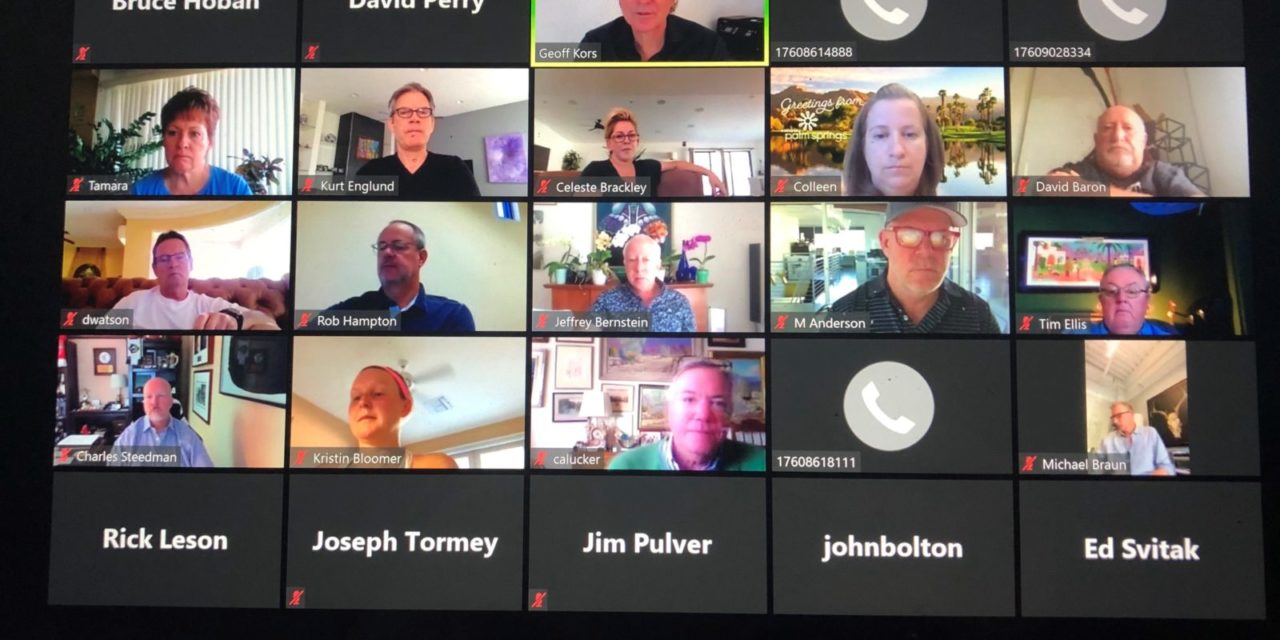
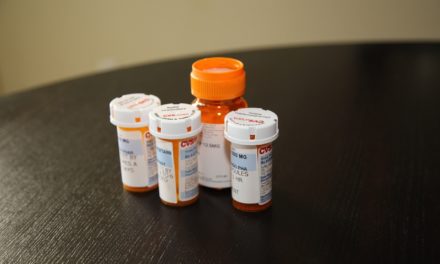
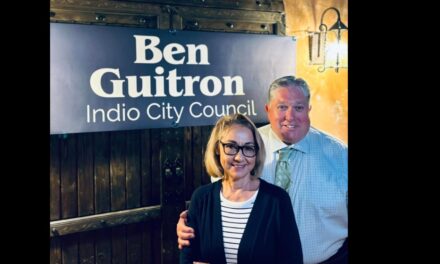
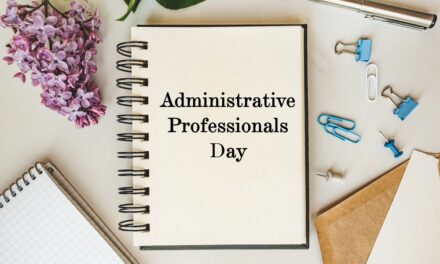
![Enrolling Now, Rewarding Careers Ahead [Sponsored]](https://ukenreport.com/wp-content/uploads/2024/04/COD_heroes_1-1385-2-440x264.jpg)

